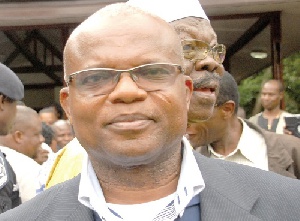Dr. Nana Ato Arthur, the Head of the Local Government Service, has called for the Metropolitan, Municipal and District Assemblies (MMDAs) to focus priority on building a more reliable revenue database.
This, he said, was vital for increased revenue generation, mobilization and efficient monitoring.
“They should have up-to-date information, regarding properties, businesses and all other sources of revenue upon which taxes are levied.”
He added that this was the way forward for doing proper forecasting, billing and to maximize collection.
Dr. Ato Arthur was speaking at the launch of the "Tax Revenue for Economic Enhancement (TREE)" project in Cape Coast.
The four-year project seeks to strengthen internal revenue generation performance of the MMDAs for sustainable development.
Under it, there would be capacity building of some of the assemblies and they would also be supported with efficient tax management software.
Its launch brought together officials from the Finance Ministry, budget and revenue officers, financial analysts, Metropolitan, Municipal and District Chief Executives and chiefs from across three regions - Central, Ashanti, and Western.
Dr. Ato Arthur discouraged the over-reliance on the District Assemblies Common Fund (DACF) and described that as “worrying”.
The situation, he said needed to change – the assemblies should have other revenue streams to fund their development programmes and make things better for the people.
He noted that they "currently have total control over only their internally generated funds because the Common Fund and funds from donor partners, target specific development projects and therefore cannot be used for recurrent expenditures".
Mr. Kwasi Boateng Adjei, Deputy Minister for Local Government and Rural Development, urged them to scale-up their revenue mobilization effort to ensure smooth implementation of their development agenda.
General News of Thursday, 15 March 2018
Source: ghananewsagency.org













